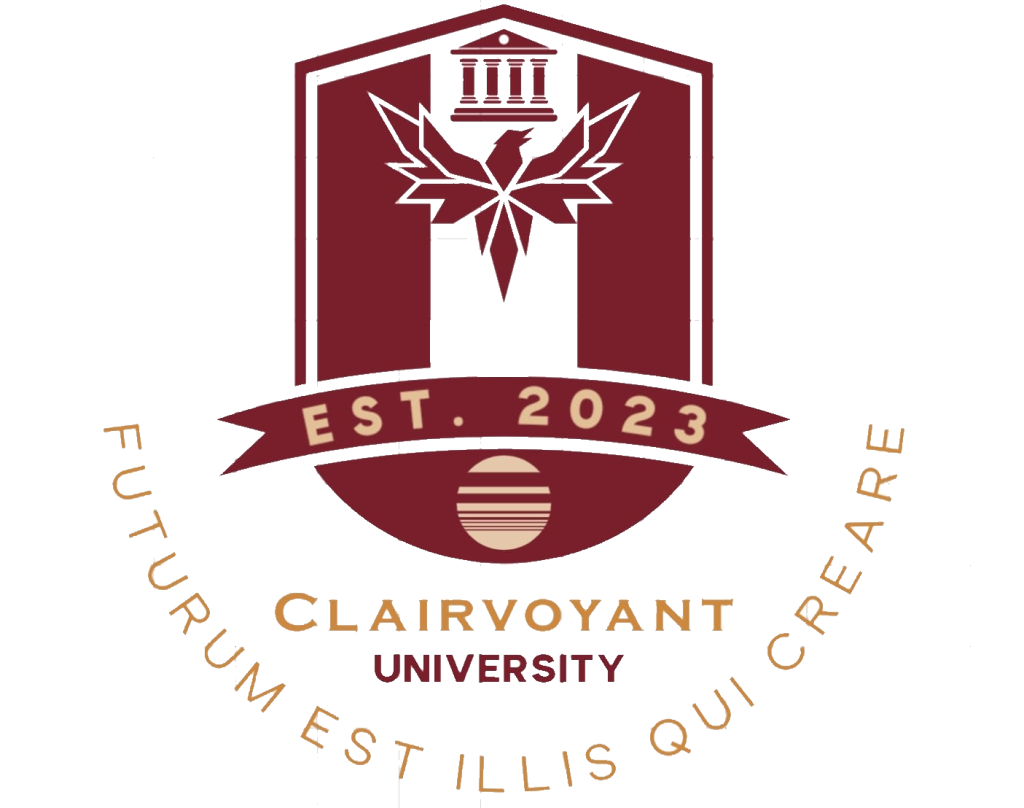- info@clairvoyantuniversity.com
- Miami, Florida
ADMISSION TEST
SAT (Scholastic Assessment Test)
- The SAT is commonly required for undergraduate admissions in the United States.
- It assesses mathematical proficiency, evidence-based reading, and writing skills.
- The test includes three sections: Math, Evidence-Based Reading and Writing (EBRW), and an optional Essay section.
- Scores range from 400 to 1600, combining Math and EBRW scores.
GRE (Graduate Record Examination)
- The GRE is often required for admission to graduate programs, particularly for master’s and doctoral programs.
- It consists of three sections: Verbal Reasoning, Quantitative Reasoning, and Analytical Writing.
- Scores for Verbal and Quantitative Reasoning range from 130 to 170, and the Analytical Writing section is scored on a scale of 0 to 6.
In addition to these standardized tests, other admission requirements may include
- TOEFL or IELTS: For international students, English proficiency tests such as the Test of English as a Foreign Language (TOEFL) or the International English Language Testing System (IELTS) may be required.
- Letters of Recommendation: Many programs ask for letters of recommendation from teachers, professors, or employers who can speak to your qualifications and potential for success in the program.
- Statement of Purpose or Personal Statement: A written essay outlining your academic and professional goals, as well as why you are interested in the particular program.
- Transcripts: Official transcripts of your academic records from previous educational institutions.
- Application Form: Most schools have an online application form that you need to fill out.
Associate Degree Program
- Application Form:
- Complete and submit the official Clairvoyant University application form.
- High School Diploma or Equivalent:
- Provide proof of high school graduation or an equivalent qualification.
- Personal Statement:
- Submit a personal statement explaining your interest in the mystical arts and your aspirations for pursuing an associate degree in clairvoyance.
Bachelor's Degree Program
- Application Form:
- Complete and submit the official Clairvoyant University application form.
- Transcripts:
- Provide official transcripts from high school or previous college education.
- Letters of Recommendation:
- Submit two letters of recommendation attesting to your character and potential in the field of clairvoyance.
- Personal Statement:
- Submit a detailed personal statement outlining your experiences, beliefs, and reasons for choosing Clairvoyant University for your bachelor’s degree.
Transfer Student Requirements
- Official Transcripts:
- Submit official transcripts from all previously attended colleges or universities.
- Transfer Credit Evaluation:
- Provide a detailed course syllabus for each class taken at the previous institution to facilitate a comprehensive evaluation of transfer credits.
- Good Academic Standing:
- Demonstrate a satisfactory academic record and be in good standing at the previous educational institution.
- Letter of Intent:
- Submit a letter of intent explaining the reasons for transferring to Clairvoyant University and how the unique programs align with your academic and personal goals.
- Recommendation Letter from Current Institution:
- Include a recommendation letter from a faculty member or academic advisor at the current institution.
- Interview:
Participate in an interview with an admissions counselor to discuss your academic history, reasons for transferring, and alignment with Clairvoyant University’s educational philosophy
7. Additional Materials:
- Provide any additional materials requested by the admissions office to support your application.
Note:
- Transfer Credit Limits:
- Clairvoyant University may have specific limits on the number of transfer credits accepted, especially for courses related to clairvoyance and metaphysical studies.
Master's Degree Program
- Application Form:
- Complete and submit the official Clairvoyant University application form.
- Bachelor’s Degree or Equivalent:
- Hold a bachelor’s degree in a related field or demonstrate equivalent experience.
- GRE for Clairvoyance (GC):
- Take the Clairvoyance Graduate Record Examination (GC), a specialized test assessing intuitive abilities.
- Professional Experience:
- Provide evidence of relevant professional experience or involvement in metaphysical practices.
Doctorate Program
- Application Form:
- Complete and submit the official Clairvoyant University application form.
- Master’s Degree in Clairvoyance or Related Field:
- Hold a master’s degree in clairvoyance or a closely related field.
- GRE for Advanced Clairvoyance (GC-Adv):
- Take the Advanced Clairvoyance Graduate Record Examination (GC-Adv), a comprehensive test evaluating advanced mystical understanding.
- Research Proposal:
- Submit a detailed research proposal outlining the intended focus of your doctoral studies in the realm of clairvoyance.
- Interview:
- Participate in an interview with faculty members to discuss your research interests, goals, and alignment with the university’s vision.
EVERYTHING YOU NEED TO KNOW
We are excited you want to be part of the Clairvoyant Family and we are committed to doing everything we can to get you into your first classes at CL this Fall.
If you need help with applying, getting your transcripts or answers to your questions, we are here for you.

WE'RE HERE TO HELP
We are excited you want to be part of the CLairvoyant Family and we are committed to doing everything we can to get you into your first classes at CL this Fall.
If you need help with applying, getting your transcripts or answers to your questions, we are here for you.

